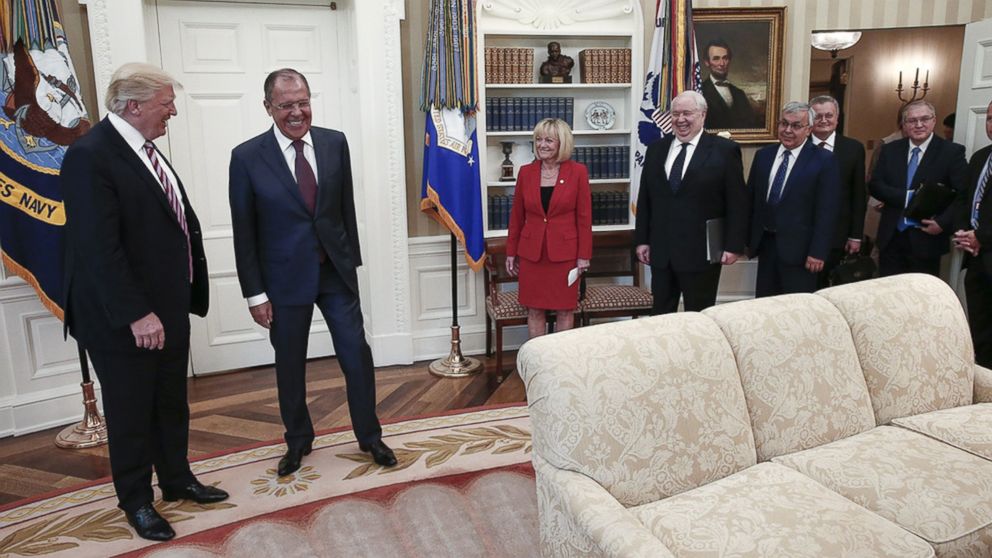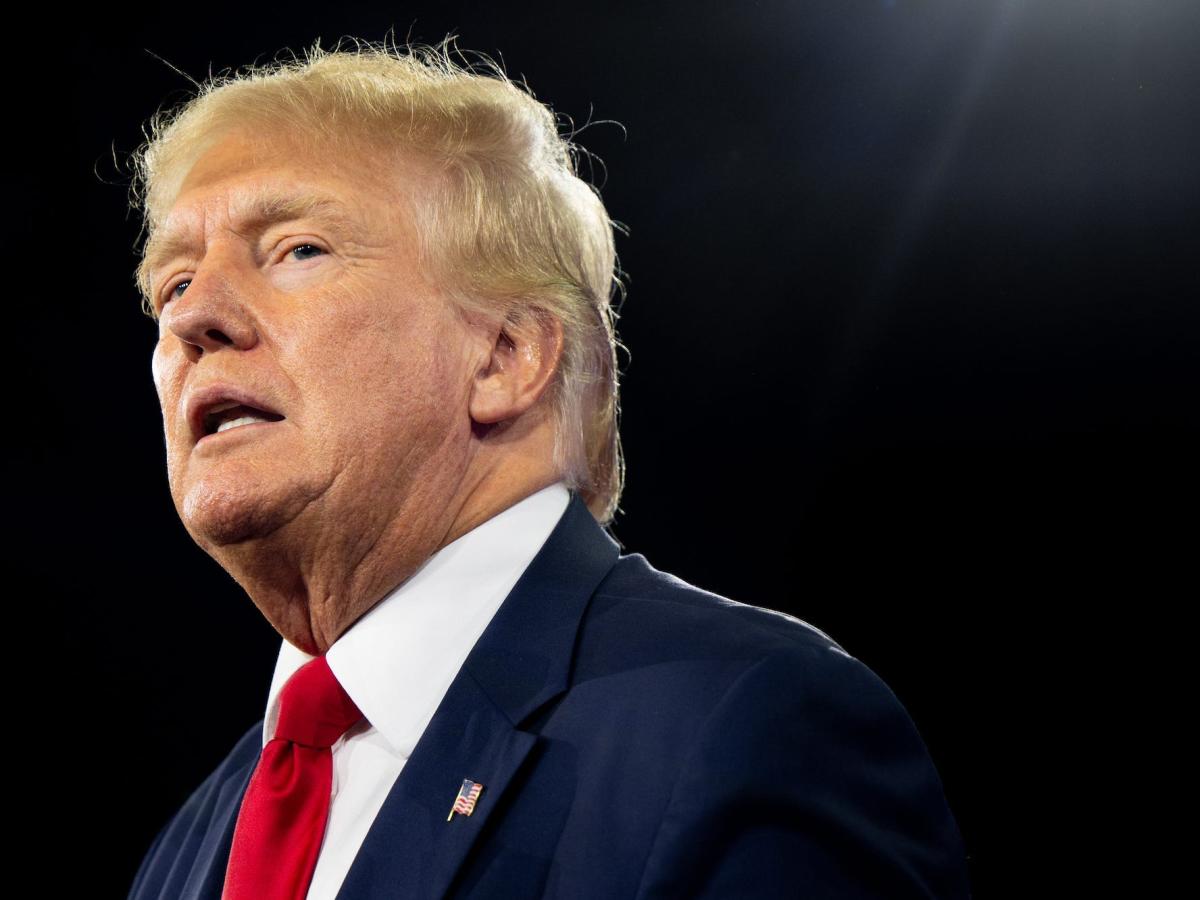That will be determined by the court system. It might end up in the Supreme Court as the case will be very important to the citizen of our nation.
Trump has the ultimate authority over classified information. He won that battle back in 2017. Now of course a number of Republicans and all Democrats do not want to see Trump run in 2024 so it it hard to say what will happen.
I will present both sides of the argument for a change. …
Despite the blowback, Trump is right.

abcnews.go.com
President Trump tweeted Tuesday morning that he had the "absolute right" to share information about national security with Russian officials in the White House last week, after The Washington Post reported that the information was highly sensitive and classified.
The White House called the report "false" and denied that he revealed specific information about sources, methods and military operations to Russia.
Despite the massive blowback from the intelligence community and Democratic and Republican members of Congress, Trump is right.
Executive Order 13526
As president, Trump has the legal power to declassify information. He also has the authority to share information with whomever he wants, including foreign adversaries.
Former Arkansas Governor Asa Hutchinson took aim at former President Donald Trump during an interview with CNN’s “State of the Union” on Sunday that the GOP needs an alternative solution to Trump's “arrogance and revenge." During the interview, anchor Dana Bash asked Hutchinson, "So you think...

ussanews.com
Former DNI Ratcliffe: Trump Had ‘Ultimate Declassification Authority’ and Standing Order To Declassify Documents at Mar-a-Lago
Posted on August 17, 2022 by Constitutional Nobody
John Ratcliffe, former Director of National Intelligence (DNI), said on Friday that it is “virtually impossible” to prosecute someone for mishandling classified documents, and claimed that former President Donald Trump had the “ultimate declassification authority” in terms of classified documents.
“The president does have ultimate declassification authority. He can literally declassify—and President Trump had that authority, and could declassify anything you want while he was president,” Ratcliffe, who was a Republican member of Congress before Trump brought him on as DNI.
Documents that were unsealed last Friday, revealed that Trump’s Mar-a-Lago home was raided by FBI on August 8 because of several law violations including the Espionage Act of which a sitting president can not be held liable under, and Trump was president when he declassified the documents in question.
Ratcliffe told Fox News that prior to the search warrant materials being made public, he didn’t think the raid was about classified documents.
“It has to be more than that because the Department of Justice and the FBI have already set a standard that makes it virtually impossible to prosecute a case like that,” he said, citing former Secretary of State Hillary Clinton’s possession of classified documents on her illegal private email server was handled by the FBI, and how then-FBI Director James Comey let her skate.
“As people talk about Espionage Act and classified documents and all of that, the standard was set in 2016. Remember the Department of Justice and the FBI took the official position that Hillary Clinton, who was in possession of classified documents … that [being] in possession of that, that wasn’t enough, and that being grossly negligent and being careless, Jim Comey told us, that’s not enough under the Espionage Act. You have to know you’re violating the law,” Ratcliffe explained.
“Even if you assume the worst case scenario for President Trump, that there were classified documents in his possession at Mar-a-Lago, that only puts him where Crooked Hillary Clinton was. And what the FBI and the Department of Justice would have to show is that he knew the documents were there and he didn’t think they were declassified,” he added.
To be fair I will present the other side of this debate.
Trump's claim that he had broadly declassified the files, even though he didn't do so formally, amounts to a "damning admission," wrote Asha Rangappa.

news.yahoo.com
A legal analyst has weighed in on Trump's claim about having declassified the Mar-a-Lago documents.
- She posited that Trump didn't formally declassify them so as to retain their value as secret files.
- Trump's claim amounts to an "incredibly damning admission," wrote former FBI agent Asha Rangappa.
For weeks, former President Donald Trump has defended himself by saying that he had broadly declassified the documents seized from his Mar-a-Lago home.
That claim amounts to an "incredibly damning admission," wrote Asha Rangappa, a former FBI special agent who is now a legal analyst and editor at Just Security, in a
tweet on Wednesday.
By not adhering to the official declassification process — and there is no evidence that Trump had done so — the former president showed that he wanted to keep the secrets in these documents valuable, suggested Rangappa, who is an assistant dean and a senior lecturer at Yale University's Jackson School of Global Affairs.
"Why would you do that? Only if you wanted the secrets to have value to someone," she wrote.[/i]
In the Nixon Tapes case, which I argued, the Supreme Court unanimously ruled that a president is bound by otherwise valid regulations … including declassification restrictions.

thehill.com
***snip***
The problem with this alternate defense is that it is both legally inaccurate (because the relevant statutes apply, whether or not information is formally “classified”) and it actually is foreclosed by a Supreme Court case involving former president Richard Nixon,whom Trump has now eclipsed as a scofflaw.
Too many commentators have blithely accepted the underlying but false proposition that a president may declassify anything he wants simply by handing it to someone or taking it home. Even the New York Times erroneously stated that there is “no Supreme Court precedent” that would limit a president’s power to declassify any documents he chooses to release. The Times notes that, as commander-in-chief of the armed forces, the president is the ultimate “classifying authority” and, it is inferred, he may declassify anything, anytime. These commentators merely take issue with Trump’s contention that he did so with the files that he spirited off to Mar-a-Lago.
The crucial flaw in that analysis is that — like every other presidential power — the law may regulate the circumstances in which that power may be exercised, especially when the presidency itself has accepted those constraints. That is the situation with the process for declassifying state secrets, even by the president.




